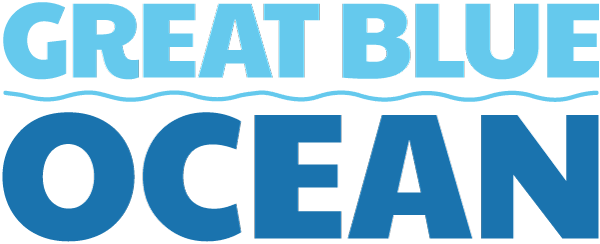Great Blue Ocean
Joint principles of inclusion for working with UK Overseas Territories and their historical context.
The Great Blue Ocean (GBO) coalition comprises Blue Marine Foundation, Greenpeace, the Marine Conservation Society (MCS), The Pew Trusts, Royal Society for the Protection of Birds (RSPB), and the Zoological Society of London (ZSL). Since 2015 GBO has been working in close collaboration with the UK and UK Overseas Territories (UKOT) governments on the Blue Belt Programme, an ambitious policy that seeks to meaningfully protect over four million square kilometres of UKOT waters around the world, to benefit the diverse species, habitats and the communities that depend on them, as well as contributing to the global effort to address the climate and nature emergencies.
The GBO Coalition is committed to genuine collaboration with the UKOTs, and believes that conservation interventions can only work in the long-term if they are accepted and supported by local communities, UKOT governments, and local NGOs.
Since its creation, the GBO Coalition, and its member organisations, jointly and separately, have engaged variously with communities and NGOs on UKOTs, governing bodies on and off-island, and diaspora of UKOTs when planning research, and developing campaign and advocacy plans. While we acknowledge that this may not have always been extensive enough or sufficient, we have done so in good faith, and to the best of our abilities, with the resources and access available to us. We have constantly tried to improve on this and drawing together these principles is our commitment to continue learning, while working better and more inclusively, as we go forward.
Sensitivities around working on environmental issues in the UKOTs, specifically in the context of the legacy of colonialism, have existed for decades. Conservation practices, for example, can exclude UKOT voices from decision-making and representation, with such practices being increasingly linked to the legacy of colonialism and the reproduction of colonial practices. As a coalition focusing on marine conservation in the UKOTs, we recognise that we have a responsibility to proactively review our group principles and practices, often as part of wider organisational change. We need to understand how they may or may not be contributing to ongoing colonial legacies, and to develop collaborative solutions with our UKOT partners to ensure fair, diverse and equitable representation and inclusion.
To actively work for genuine inclusive cooperation and collaboration, the GBO Coalition will seek to embed key principles of anti-colonisation, including:
- Recognising that the environment is a devolved area of responsibility for UKOT governments;
- Understanding the multiple histories, including colonialism and slavery, along with their social and economic legacies in the relevant UKOTs where we work. We will fully consider this in the light of our existing practices, while seeking to develop fair and inclusive coalition approaches and strategies;
- Championing the UKOTs environmental identities and ambitions to the UK public, media and policy-makers;
- Prioritising and learning from Territory voices and Territory leadership in our communications about the UKOTs;
- Collectively learning and co-developing best practice on engaging and empowering UKOT communities, governments, and NGOs to sustainably manage, steward and benefit from Marine Protected Areas and marine resources;
- Collectively learning and co-developing best practice to ensure UKOT communities, governments and NGOs benefit from, are involved in, and have access to, conservation and research funding, plus the associated programme and project development;
- Collectively learning and co-developing best practice to ensure UKOT communities, governments and NGOs own, benefit from and have access to information, samples and data generated by marine research and marine conservation projects undertaken in their Territories, in accordance with FAIR principles;
- Proactively supporting UKOT diaspora communities in the UK to engage with UKOT marine conservation;
- Advocating for ongoing representation of at least two UKOT government representatives and one UKOT Civil Society Group representative on the UK Government’s Blue Belt Programme Steering Group, and for UKOTs to be represented in relevant international policy events;
- Advocating for rebalancing of Blue Belt Programme funding towards UKOT partners that support empowerment and local ownership of projects;
- Sharing relevant best practices, including from GBO partners’ organisational Equality, Diversity and Inclusion (EDI) programmes, that are applicable to GBO’s work and vice-versa where appropriate;
- Recognising that some UKOT populations have unresolved colonial legacies that are still under dispute, most notably the forced displacement of the Chagossian people. We will work to better understand, and engage relevant communities, whilst considering their hopes and ambitions for marine conservation and management in their UKOTs.
